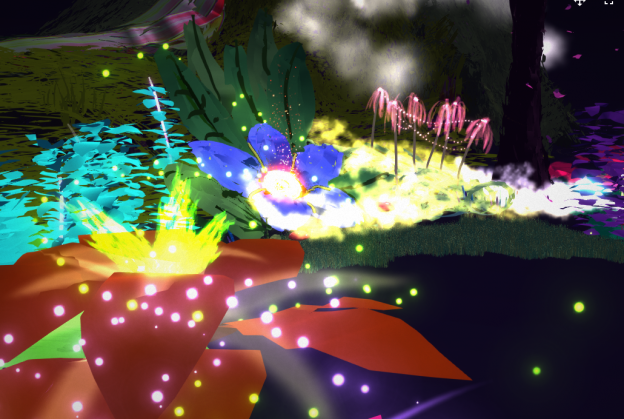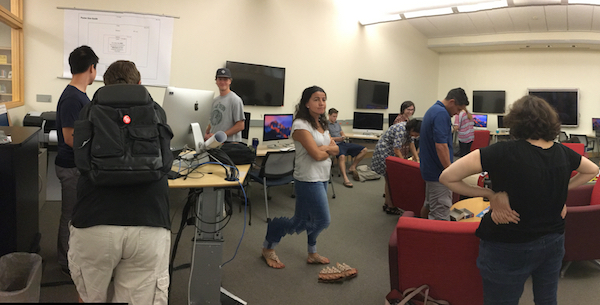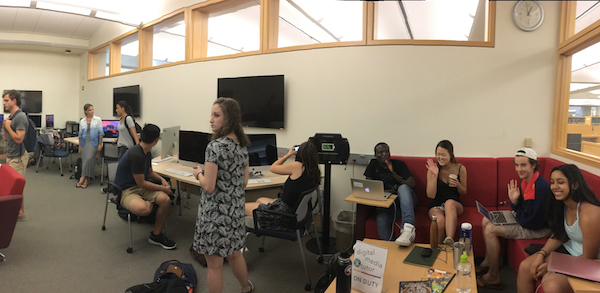Agenda
We will be using this time to follow up on a Student engagement/Employment conversation with folks from DLINQ and ITS that occurred a while ago. DLINQ would also like to introduce Studio Learning as a way to immerse our student staff in meaningful work.
To help guide the discussion here is a website representing what a specific studio could be- http://act.middcreate.net/studios/
Also, here is the start of a proposal for this studio –
https://docs.google.com/document/d/1Ss3XWKyTl_NPiohhMwoyyaZBHCJnxsPMHTVbcEEocQ4/edit
Notes
- This meeting is a follow up from a previous meeting that included Bob, Heather, Joe A., Joe D., and Mack P.
- Joe A. introduced the idea of Studio Learning as a strategy that DLINQ will be piloting in the fall.
- Q: What technology will the Studios need?
- Each Studio will have different needs. Some will need physical space and equipment, others will be able to operate in digital spaces.
- Long-term storage and maintenance plans need to be a consideration for Studio projects.
- Student staff supervisors in both DLINQ and ITS are seeing fewer students apply for jobs, and there is an interest in making these positions more appealing.
- Studio Learning offers students the chance to participate in transformational activities, contributing to academic research while developing desirable skills for their careers.
- Q: Is Studio Learning a way to connect student workers based on interest?
- A: Students can engage in a Studio from an interest in the technologies being used or the topics that are being explored. Whether this could become part of a student staff job description would need further discussion.
- Could Studio Learning engagement be an optional activity within a job description?
- A: Possibly, needs further discussion.
- ITS student staff do valuable work There is an expectation that the student workforce will continue to grow.
- We need to recognize that there is a cost to management students. Web Development has learned that it takes a long time to get people up to speed on the complexities of the systems before they can make meaningful contributions. This is true for new staff hires, as well.
- Q: Can students gain experience with the Studio Learning model that would prepare them for more complex student staff positions?
- A: Possible, needs further discussion.
- Current student staff are being “poached” by other programs. We are giving them valuable training and expertise that is desired by other departments. This has an effect on the development of our programs, senior student staff regularly become role models and supervisors of new student staff hires.
- Q: What needs would not be met by the Studio model?
- A: There is a tension when trying to meet a diverse set of needs and expectations with our various cultures and communities. Needs to be discussed more, may depend on the Studio. A shared Basic orientation may provide an opportunity for cross-training.
- Q: Is there a desire to continue this discussion?
- A: Yes. Needs to include others.
- Q: Who else should be invited to future meetings?
- A: Joe Durante, Charlotte Pratt. Who else?





You must be logged in to post a comment.